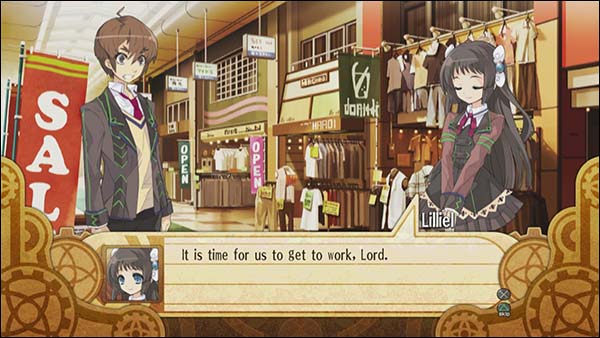
The Guided Fate Paradox is the latest game from Nippon Ichi Software and the team behind the Disgaea series. It is a roguelike, or “Mystery Dungeon” game and as such can be seen as a spiritual successor to the 2010 PSP title Z.H.P. Unlosing Ranger VS Darkdeath Evilman. Essentially, it is a turn-based dungeon crawler that takes place on a grid, and while character progression is certainly possible each venture into a dungeon starts your character back at level one. You also lose everything you have when you die, which will happen. Often.

The overarching plot of Paradox is about par for the course for those of you familiar with the NIS library. Goofy characters, anime tropes, and whimsical nonsense carry a story about Renya, a typical high school student given the powers of a god. Renya’s goal is to help people by answering their prayers, and he does this by fighting monsters in artificial duplicates of a given world, which affects the fate of the original. Silly as that may be, it’s as good an excuse as any to get to the good parts.
What really sets this game apart from its peers is the episodic nature of the writing. NIS games are always presented in chapters, aping anime style plot progression for cheap laughs, but none have utilized the format particularly well. This time around, each chapter has its own complete story. Each little vignette has a beginning, middle, and end with a cute lesson and sometimes fascinating takes on familiar stories. For example, the first chapter features the story of Cinderella and examines the problematic aspects of princess fairy tales.

Mechanically, those familiar with Z.H.P. will feel right at home. Paradox plays like any other Japanese roguelike, but with that loose sense of malleability that comes with the NIS branding. Renya can equip all sorts of silly things that alter his appearance, change his stats, and give him access to several different kinds of skills.
Once you die or finish a dungeon, your level falls back down to one. However, your base stats go up based on how many levels you gained. So, in a roundabout way you still naturally progress. NIS tries to have its cake and eat it too. Here’s where it gets silly: Each piece of equipment you find has a meter that builds during use. Once that meter is full, the item’s stats nosedive. You can pay a fee to restore it and boost the item’s power, and doing so gives you an item which can be placed on a board for additional stat growth. This can be done multiple times on a single item, and filling in the board not only raises your base stats, but can net you other bonuses such as larger inventory space if you’re willing to eliminate some of your built up stat bonuses. It seems overwhelmingly complex at a glance, but the amount of options lets you approach it with as much effort as you feel like putting into it and benefitting appropriately.

In a nutshell, with The Guided Fate Paradox NIS wants to have the quirkiness and challenge of the roguelike, but still allow players to grind and break the game should they want to put the time in a la Disgaea. It comes off as a little more messy and confusing than the Disgaea series, but steps have been taken since Z.H.P. to make the systems designed for depth a little more accessible. As a result, the rest of the game feels less obtuse. Mystery dungeon fans will find a lot to like and play around with here, and Disgaea fans may appreciate the familiar scenery paired with a somewhat refreshing change of style.

Hint: Don’t be afraid to die. These games are designed to be occasionally unfair, so a typical game over screen isn’t present. Items come and go, but stat boosts and guaranteed and permanent.
by Lucas White
Already have a VIZ account? Log in.
Don't have an account? Sign up.
Enter the e-mail address associated with your account and we'll email you a link to reset your password.